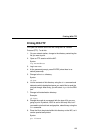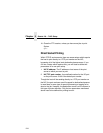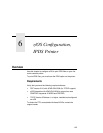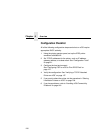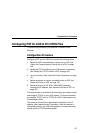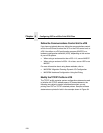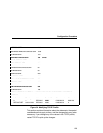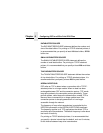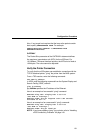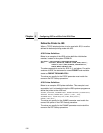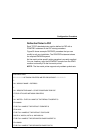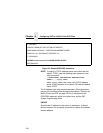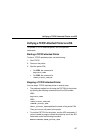
Chapter 6 Configuring PSF for z/OS to Print IPDS Files
130
DATABUFFERPOOLSIZE
The DATABUFFERPOOLSIZE statement defines the number and
size of the data buffers. For printing on TCP/IP-attached printers, it
is recommended that you specify at least 160 data buffers, 32768
buffer size.
SMALLDATABUFFERPOOLSIZE
The SMALLDATABUFFERPOOLSIZE statement defines the
number of small data buffers. For printing on TCP/IP-attached
printers, it is recommended that you specify at least 256 small data
buffers.
TINYDATABUFFERPOOLSIZE
The TINYDATABUFFERPOOLSIZE statement defines the number
of tiny data buffers. For printing on TCP/IP-attached printers, it is
recommended that you specify at least 256 tiny data buffers.
KEEPALIVEOPTIONS
PSF relies on TCP to detect when a connection with a TCP/IP-
attached printer is no longer usable. When no data has been
exchanged between PSF and its connection partner, TCP sends
keep-alive probes to the connection partner periodically. These
periodic probes, called keep-alive transmissions, enable TCP to
discover when a connection is no longer usable even if the
connection partner is abruptly powered off or is no longer
accessible through the network.
The frequency of keep-alive transmissions is controlled by the
INTERVAL parameter on the KEEPALIVEOPTIONS statement.
The frequency applies to all TCP applications that direct TCP to
send keep-alive transmissions. The default frequency is after about
two hours of inactivity.
For printing on TCP/IP-attached printers, it is recommended that
you specify a shorter interval than the default, such as 10 minutes,
for the interval between keep-alive transmissions.




